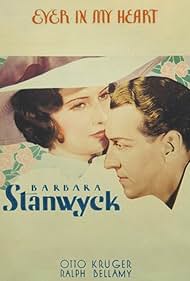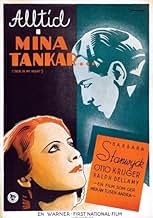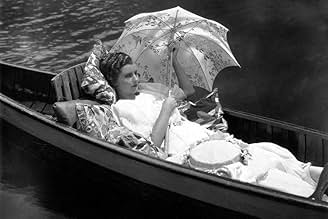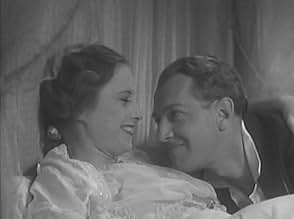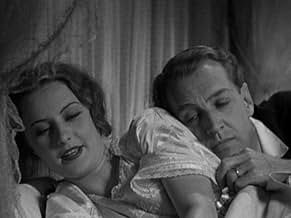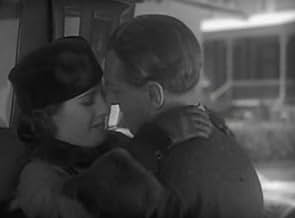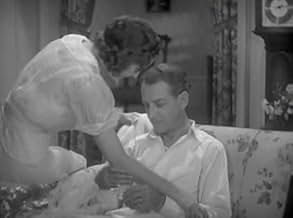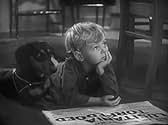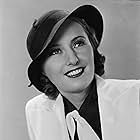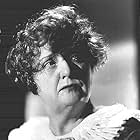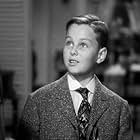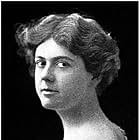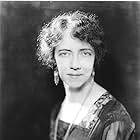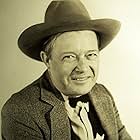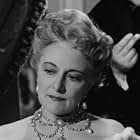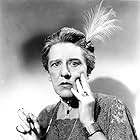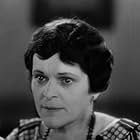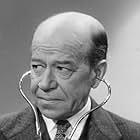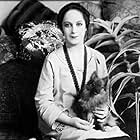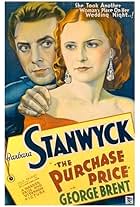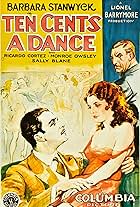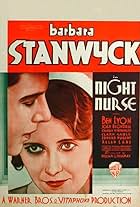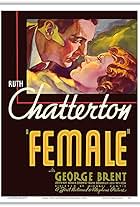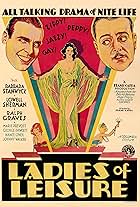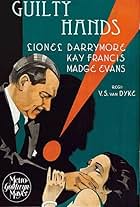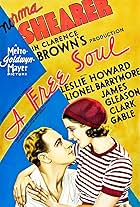World War I brings tribulations to an American woman married to a German.World War I brings tribulations to an American woman married to a German.World War I brings tribulations to an American woman married to a German.
Ronnie Cosby
- Teddy 'Sonny' Wilbrandt
- (as Ronnie Crosby)
Elizabeth Patterson
- Clara Tuttle--Canteen Worker
- (credit only)
Ethel Wales
- Miss Honeywell--Canteen Worker
- (credit only)
Donald Meek
- Storekeeper
- (scenes deleted)
Wallis Clark
- Enoch Sewell
- (uncredited)
George Cooper
- Lefty--Soldier
- (uncredited)
Claire Du Brey
- Party Guest
- (uncredited)
Storyline
Did you know
- TriviaAn early example in a long line of films where the character played by Ralph Bellamy is the second romantic lead and loses or doesn't get the girl.
- SoundtracksDu, Du Liegst Mir im Herzen
(uncredited)
Traditional German folksong
Played during the opening credits and often as background music
Played on piano and sung by Otto Kruger
Words reprised often
Featured review
For a retired history teacher, there sure is a lot to love about this film. "Ever in My Heart" discusses one of the big secrets of twentieth century American history. Few today realize that during WWI, there was a serious backlash against Germans living in the United States. This is odd, as through most of the war, Americans were roughly divided in half between those who supported the Central Powers (including the Germans) and the Allied Powers--and the average American just wanted us to stay out of the conflict. Yet, in a case o political and newspaper jingoism, the country went from very neutral (in 1916 Wilson's re-election campaign motto was "he kept us out of the war") to declaring war only three months later! And, at the same time, the pub went insane--and often persecuted anyone of German heritage--roughly 25% of the country!! Riots, beatings and even murders of German-speaking citizens (some of which were actually Swiss or Dutch) were relatively common and many German-Americans changed their names to avoid persecutions. German-language newspapers and churches ceased as well.
This film was exceptionally well directed, sensitively written and acted and it's obvious Warner Brothers believed in this film. This actually isn't surprising, as in the early 1930s, Hollywood was very pro-German--as Americans were now having second-thoughts the advisability of their involvement in this war as well as the persecutions of Germans in the country. In other words, it was a pretty safe topic to question American attitudes during WWI by 1933. Simply stated, people in America were feeling sorry for the Germans---which, ironically, coincided with the rise of fascism (oops--talk about bad timing).
In "Ever in My Heart", Mary (Barbara Stanwyck) falls in love with Hugo (Otto Kruger) and they marry. He's a very nice man and they have every reason to be happy. Soon after marrying and having a child and the household is bilingual. Hugo also becomes an American citizen and he is proud of him family and new nation. And, at about the same time, WWI begins. As the war progresses, however, anti-German sentiments begin to affect Hugo as well as his family. First, their ' friends' begin to shun them. Then, he loses his job simply because he's a German-American. And then, it gets MUCH worse....and, towards the end, a bit hard to believe--but still quite exciting. I won't say more--I don't want to spoil it. Suffice to say it's a heck of a good film--and might just bring a tear or two to your eyes.
By the way, although Otto Kruger was a fine actor and was very good here, he actually was not a German (despite his excellent German language skills) but his heritage was Dutch.
This film was exceptionally well directed, sensitively written and acted and it's obvious Warner Brothers believed in this film. This actually isn't surprising, as in the early 1930s, Hollywood was very pro-German--as Americans were now having second-thoughts the advisability of their involvement in this war as well as the persecutions of Germans in the country. In other words, it was a pretty safe topic to question American attitudes during WWI by 1933. Simply stated, people in America were feeling sorry for the Germans---which, ironically, coincided with the rise of fascism (oops--talk about bad timing).
In "Ever in My Heart", Mary (Barbara Stanwyck) falls in love with Hugo (Otto Kruger) and they marry. He's a very nice man and they have every reason to be happy. Soon after marrying and having a child and the household is bilingual. Hugo also becomes an American citizen and he is proud of him family and new nation. And, at about the same time, WWI begins. As the war progresses, however, anti-German sentiments begin to affect Hugo as well as his family. First, their ' friends' begin to shun them. Then, he loses his job simply because he's a German-American. And then, it gets MUCH worse....and, towards the end, a bit hard to believe--but still quite exciting. I won't say more--I don't want to spoil it. Suffice to say it's a heck of a good film--and might just bring a tear or two to your eyes.
By the way, although Otto Kruger was a fine actor and was very good here, he actually was not a German (despite his excellent German language skills) but his heritage was Dutch.
- planktonrules
- Apr 22, 2011
- Permalink
Details
Box office
- Budget
- $243,000 (estimated)
- Runtime1 hour 8 minutes
- Color
- Sound mix
- Aspect ratio
- 1.37 : 1
Contribute to this page
Suggest an edit or add missing content

